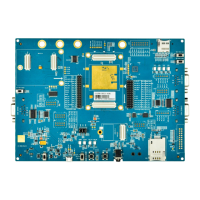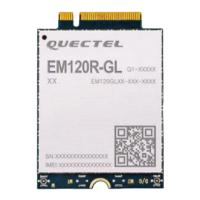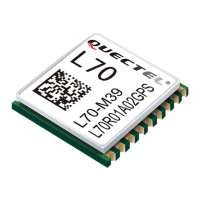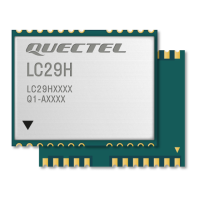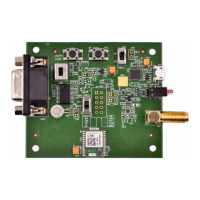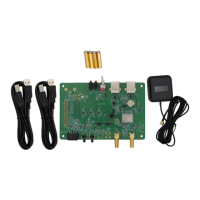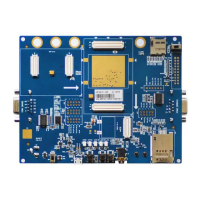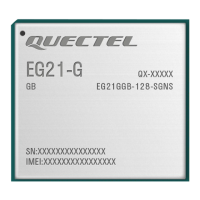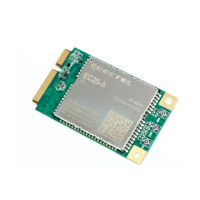LTE Module Series
EP06&EG06&EM06 GNSS AT Commands Manual
EP06&EG06&EM06_GNSS_AT_Commands_Manual 23 / 29
Parameter
2.9. AT+QGPSXTRADATA Inject a gpsOneXTRA Data File
This command can be used to inject a gpsOneXTRA assistance data file to GNSS engine. Before
operating this command, customers must enable gpsOneXTRA, store the valid gpsOneXTRA data file
into RAM or UFS (RAM is recommended) of the mudule and inject gpsOneXTRA time to GNSS engine.
After operating this command successfully, gpsOneXTRA data file can be deleted from RAM or UFS, and
customers can query whether the gpsOneXTRA data is injected successfully via AT+QGPSXTRADATA?.
<op> Operation type
0 Inject gpsOneXTRA time
<xtratime> Current UTC/GPS time
Format: YYYY/MM/DD,hh:mm:ss. e.g. 2016/01/03,15:34:50.
<utc> The type of time
0 GPS time
1 UTC time
<force> Allow or force GPS subsystem to accept the time injected
0 Allow acceptance
1 Force acceptance
<uncrtn> Uncertainty of time. Unit: ms. Default value: 3500ms. It indicates the time
difference between sending a request to the SNTP server and receiving a
response from the SNTP server. If the set time is less than 3.5s, it will be counted
as 3.5s.
<errcode> Integer type. The error code of the operation. If it is not 0, it is the type of
error. Please refer to Chapter 4 for details.
AT+QGPSXTRADATA Inject a gpsOneXTRA Data File
Test Command
AT+QGPSXTRADATA=?
Response
+QGPSXTRADATA: <xtradatafilename>
OK
Read Command
Query the status of gpsOneXTRA data
files
AT+QGPSXTRADATA?
Response
+QGPSXTRADATA: <xtradatadurtime>,<injecteddatatim
e>
OK
If there is any error related to ME functionality:
+CME ERROR: <errcode>
